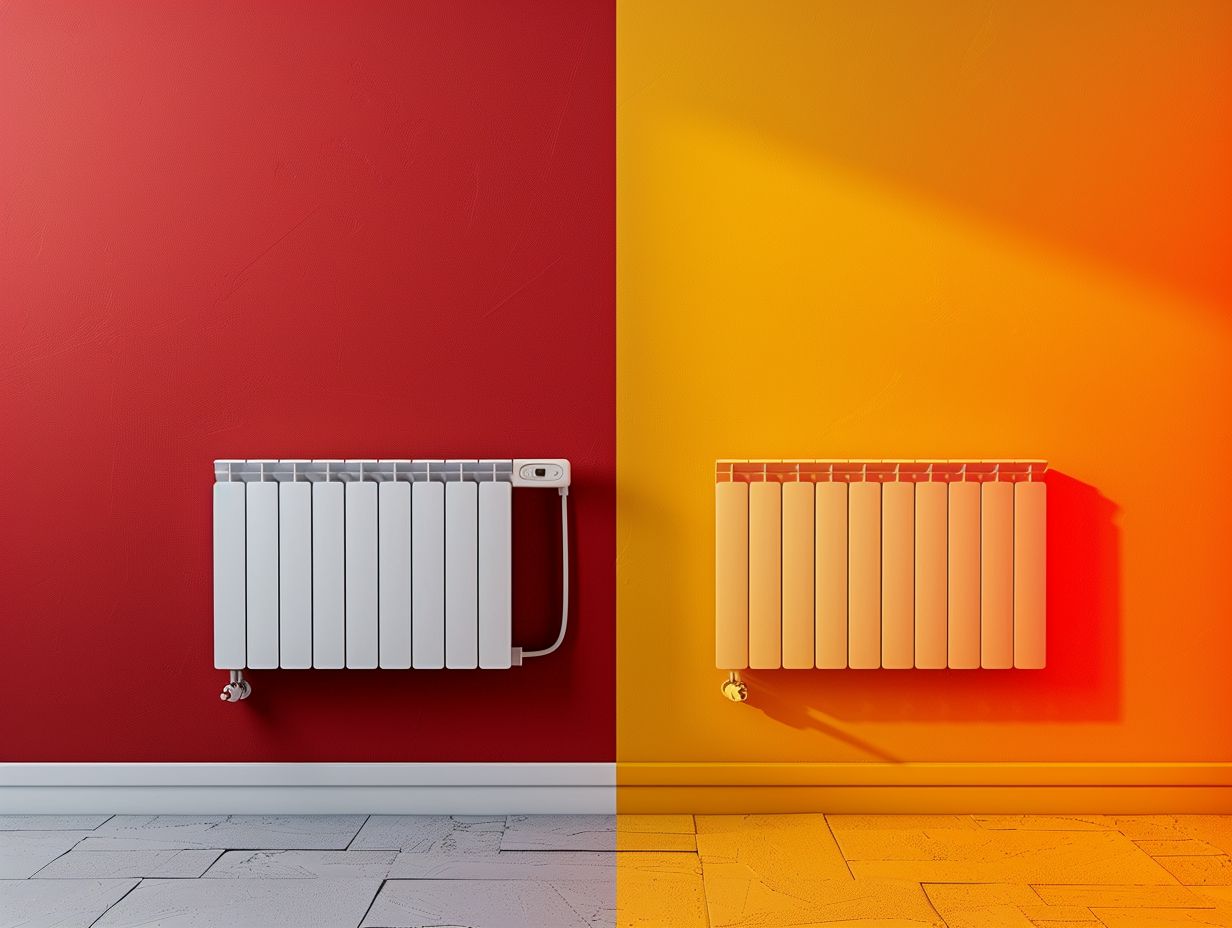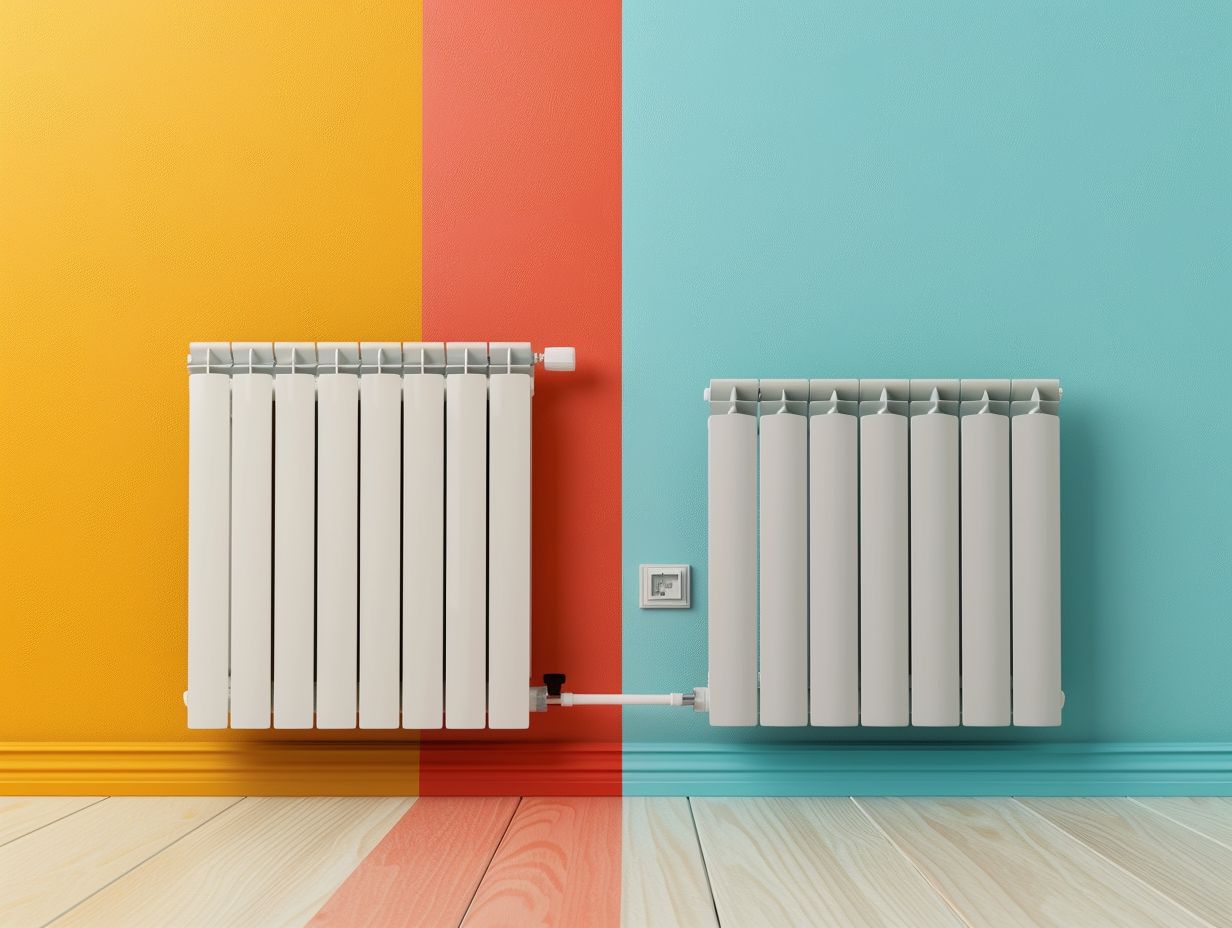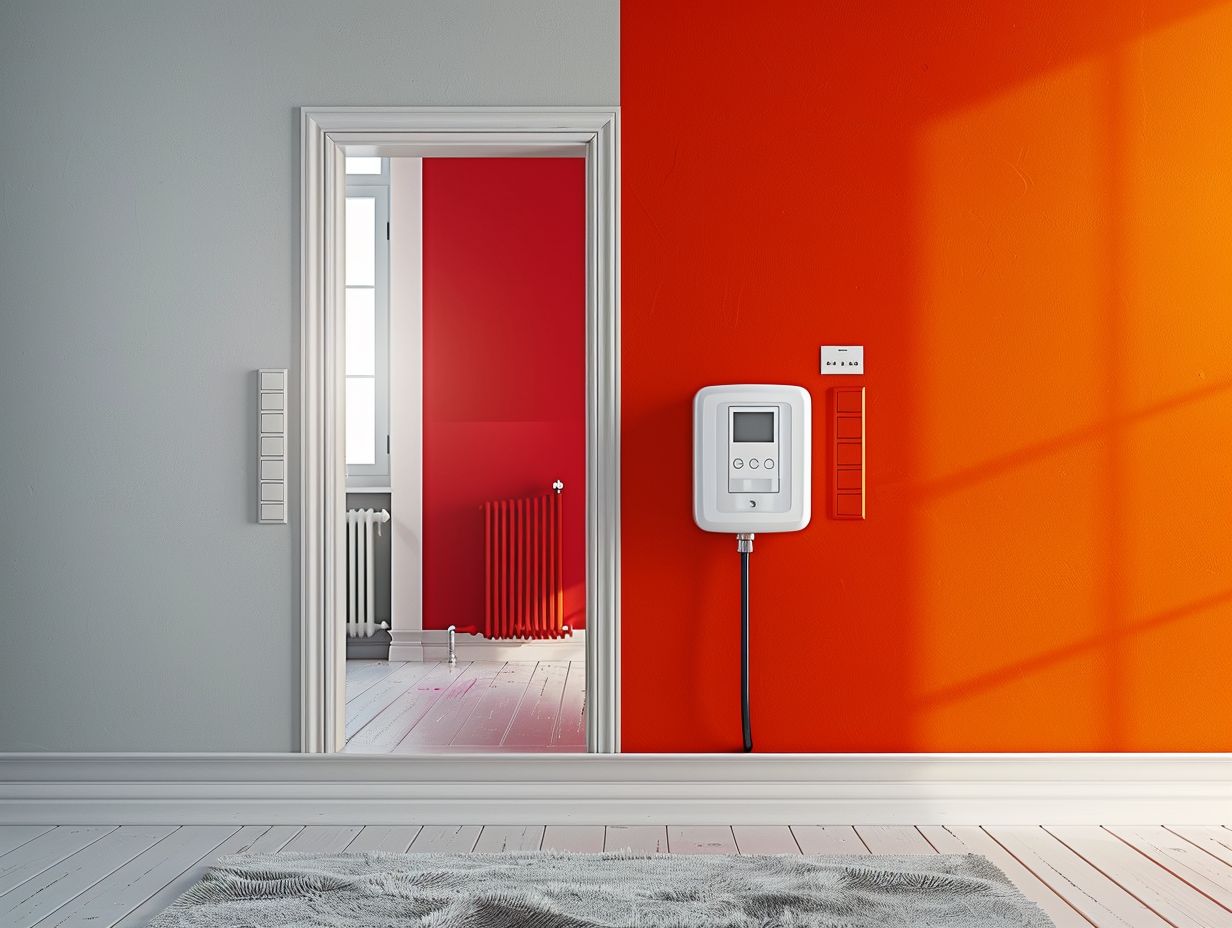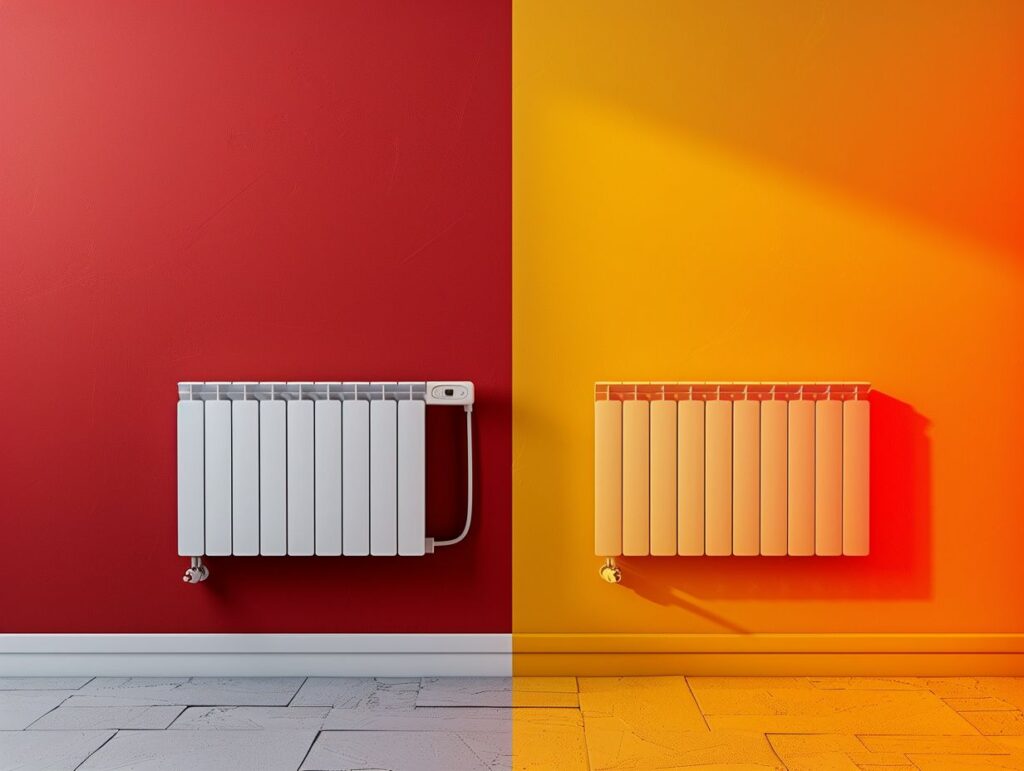Electric heating has become a popular choice for many households, leading to questions about its environmental impact compared to other heating methods. The analysis looks at the environmental impact of electric heating, compares it to other heating options, and discusses eco-friendly energy alternatives.
Furthermore, the study considers the advantages and disadvantages of electric heating and provides recommendations for improving its environmental sustainability. Those interested in the environmental impact of electric heating are encouraged to further explore the topic to gain a deeper understanding.
Key Takeaways:

- Electric heating is a form of heating that uses electricity to generate heat, making it a convenient and versatile option for homes and businesses.
- Compared to other forms of heating, electric heating has a smaller environmental footprint and can be made even more environmentally friendly by using green energy options.
- To improve the environmental friendliness of electric heating, individuals can reduce energy consumption and explore alternative heating options such as heat pumps and solar heating systems.
Environmental Impact of Electric Heating
When considering heating options, you should be aware that electric heating offers a significantly lower environmental impact compared to traditional methods reliant on fossil fuels.
By utilising electricity, which can be sourced from renewables like solar or wind power, electric heating systems help to decrease greenhouse gas emissions, reduce carbon footprints, and enhance energy efficiency while minimising air pollution.
Furthermore, in addition to diminishing greenhouse gases, electric heating plays a crucial role in advancing the adoption of clean and sustainable energy sources. This transition to renewable energy not only lessens dependency on non-renewable resources but also contributes to a healthier environment.
The energy efficiency of electric heating systems contributes to decreased energy wastage, resulting in lower overall electricity consumption. This heightened efficiency is directly associated with reduced emissions from electricity generation, positively impacting air quality and further alleviating the adverse effects of pollution on both human health and the environment.
Comparison to Other Forms of Heating
When comparing electric heating to gas systems or other combustion-based methods, you will notice that electric heating stands out for its reliance on electricity from renewable sources, which reduces the overall impact on energy generation and the grid.
Electric heating systems contribute to enhancing energy efficiency by converting nearly all the electricity they consume into heat, resulting in minimal waste compared to the combustion processes of gas systems. This efficiency not only benefits individual households but also contributes to grid sustainability by reducing overall energy consumption.
Gas systems, on the other hand, not only rely on non-renewable sources but also release by-products of combustion, such as carbon dioxide, into the atmosphere, contributing to environmental concerns and climate change.
Green Energy Options
For heating options that are environmentally friendly, consider utilising green energy sources such as solar and wind power. These renewable sources can generate energy-efficient heating solutions that are both sustainable and eco-friendly.
Government investments in eco heating options aim to encourage the adoption of renewable electricity, enabling households to decrease their carbon footprint and embrace more sustainable heating alternatives.
Solar power is a favoured option for homeowners who are environmentally conscious, as it harnesses the sun’s energy to produce heat using solar panels. This clean and plentiful energy source not only aids in reducing electricity costs but also reduces the dependency on fossil fuels.
Along with solar energy, wind power offers another renewable alternative for generating electricity, particularly in areas with consistent wind patterns. The combined use of solar and wind power plays a crucial role in advancing a greener and more sustainable future for heating residential properties.
Advantages of Electric Heating

Electric heating offers you numerous advantages, such as cost savings on energy bills, increased efficiency through heat pumps, user-friendly operation, and the versatility of radiator systems. These benefits have made electric heating a popular choice among homeowners looking for energy-efficient and dependable heating solutions.
By opting for electric heating systems, you can achieve significant reductions in your energy expenses, leading to long-term savings.
The incorporation of heat pumps further enhances the efficiency of electric heating by extracting heat from the outside air, even in colder climates. This process ensures optimal energy utilisation, contributing to a more environmentally friendly and sustainable heating system.
The convenience of electric heating systems allows you to easily control and customise your heating settings, ensuring personalised comfort levels in different areas of your home. Additionally, the versatility of radiator systems offers flexibility in heating various spaces, ensuring consistent warmth throughout your entire household.
Efficiency and Cost Savings
Electric heating systems offer exceptional efficiency and cost savings, demonstrating advanced energy performance and the ability to regulate temperatures through smart thermostat valves.
You can further maximise these benefits by implementing energy-saving practices and taking advantage of grants available for enhancing the energy performance of your electric heating systems.
By leveraging electricity effectively, electric heating systems can deliver targeted warmth to specific areas within your home, ultimately reducing overall energy consumption.
Smart thermostat valves are instrumental in maintaining consistent temperatures and optimising energy usage according to preset schedules.
Incorporating energy-saving habits like sealing leaks and upgrading insulation can greatly enhance the efficiency of your electric heating systems. You have the opportunity to access various grants and incentives provided by government programmes and energy organisations to help offset the expenses associated with upgrading to more energy-efficient heating solutions.
Convenience and Versatility
Electric heating systems offer you unrivalled convenience and versatility. You have a range of options to choose from, such as heat batteries for efficient energy storage, storage heaters for consistent warmth, and infrared heaters for targeted heating solutions.
These sustainable heating choices provide you, as a homeowner, with flexibility and control over your heating preferences.
Heat batteries are particularly useful for you to store excess energy during off-peak hours. This allows you to use it when needed most, ultimately reducing your energy costs. On the other hand, storage heaters gradually release stored heat throughout the day to ensure a steady and comfortable temperature at all times.
As for infrared heaters, they provide quick and directional heating, making them ideal for spot heating or supplementing existing heating systems. This array of electric heating options not only offers you efficient and sustainable solutions but also caters to your varying heating needs and preferences.
Disadvantages of Electric Heating
Despite its advantages, electric heating has some disadvantages that should be considered. These include higher energy consumption compared to other heating methods, environmental considerations related to energy generation, and concerns about carbon emissions associated with electricity production.
Electric heating relies on electricity generated from various sources, which often results in higher energy consumption compared to gas or other fuel-based systems. This increased energy usage not only impacts electricity bills but also raises environmental concerns.
The generation of electricity, particularly from non-renewable sources like coal or natural gas, leads to greenhouse gas emissions, including carbon dioxide. These carbon emissions from electricity production contribute to the challenges of climate change by adding to the overall carbon footprint of a household or building that uses electric heating systems.
Higher Energy Consumption
One of the main disadvantages of electric heating is its higher energy consumption, as it relies on electricity from power outlets that may come from various sources of energy generation. Whilst heat pumps can improve energy efficiency, the overall consumption of electricity for heating purposes remains a concern.
This reliance on power outlets for electric heating systems amplifies the demand on energy resources. The energy sources used for generating electricity, such as coal, natural gas, or renewable sources like solar and wind, directly impact the environmental footprint of electric heating.
Heat pumps play a crucial role in enhancing energy efficiency by transferring heat from the outside environment to inside spaces. Despite advancements in heat pump technologies, challenges persist in optimising energy consumption levels in heating systems.
Environmental Considerations

In the use of electric heating, environmental considerations are paramount, particularly in sourcing electricity from renewable sources to diminish the carbon footprint and advocating for energy-efficient practices to decrease the strain on the grid.
By integrating renewable sources like solar, wind, and hydroelectric power, not only are greenhouse gas emissions reduced, but a cleaner energy mix is also supported.
Effective management of the grid’s impact necessitates the use of smart technologies that can regulate energy consumption efficiently, ensuring a consistent and sustainable electricity supply.
The implementation of energy-efficient practices, such as insulation and programmable thermostats, not only improves the overall efficiency of electric heating but also minimises energy wastage. By striking a harmonious balance between environmental obligations and the benefits of electric heating, individuals can contribute to a more sustainable future.
Improving the Environmental Friendliness of Electric Heating
Improving the environmental friendliness of your electric heating system involves taking steps such as draught-proofing, enhancing insulation in areas like lofts, walls, and floors, and ensuring the efficiency of doors and windows to minimise heat loss. These measures contribute to a more sustainable and energy-efficient heating system.
Draught-proofing is essential in preventing cold air from entering your property, thereby reducing the energy needed to maintain a comfortable indoor temperature. Upgrading insulation in lofts, walls, and floors helps retain heat indoors, reducing the dependence on electric heating.
Optimising doors and windows with seals and double-glazing further improves heat retention, leading to decreased energy consumption.
By implementing these strategies, homeowners can not only reduce their carbon footprint but also lower their electricity bills, offering benefits for both the environment and personal finances.
Tips for Reducing Energy Consumption
Reducing energy consumption in electric heating systems can be achieved through simple practices like optimising thermostat settings, implementing draught-proofing measures, and adopting energy-saving habits.
These measures not only lead to a reduction in energy bills but also contribute to the alleviation of fuel poverty by enhancing the affordability and sustainability of heating.
When optimising your thermostat, ensure to programme it effectively to adjust temperatures during periods of inactivity or absence, enhancing energy efficiency and resulting in substantial savings on heating costs.
Additionally, employing draught-proofing techniques by sealing windows, doors, and gaps in walls helps to retain heat within the space, thereby further optimising energy efficiency.
Embracing energy-saving habits, such as wearing adequate clothing indoors and utilising blankets to reduce dependency on constant heating, can also play a significant role in decreasing energy consumption. These incremental changes can culminate in substantial energy savings over the long term.
Exploring Alternative Heating Options
When exploring alternative heating options beyond electric heating, you should consider council initiatives, utilise renewable energy sources like heat pumps, and improve ventilation systems for more sustainable heating solutions.
These alternative options provide a range of choices for homeowners looking for eco-friendly and efficient heating alternatives. Council programmes often offer incentives and rebates to promote the use of renewable energy sources such as heat pumps, making them more accessible to households.
Proper ventilation is essential for maintaining a comfortable and healthy indoor environment while also improving the efficiency of heating systems. You can select from a variety of eco-friendly options like solar heating, geothermal heat pumps, and biomass boilers to align with your sustainability goals and reduce your carbon footprint.
These choices offer a chance for homeowners to make environmentally conscious decisions while enjoying efficient heating solutions.
Frequently Asked Questions
Is Electric Heating Environmentally Friendly?

Yes, electric heating can be environmentally friendly depending on the source of electricity used. If the electricity comes from renewable sources such as solar, wind, or hydro power, then it is considered to be environmentally friendly.
How does electric heating impact the environment?
Electric heating has a minimal impact on the environment if the electricity used comes from renewable sources. However, if the electricity is generated from non-renewable sources like coal or natural gas, it can contribute to air pollution and greenhouse gas emissions.
Are there any benefits to using electric heating for the environment?
Yes, there are several benefits to using electric heating for the environment. It reduces dependence on fossil fuels, decreases greenhouse gas emissions, and can help in the transition to a more sustainable energy system.
What are some eco-friendly alternatives to electric heating?
Some eco-friendly alternatives to electric heating include using geothermal heating, solar heating, or biomass heating. These options utilise renewable resources and have a lower impact on the environment.
Does using electric heating save energy?
Yes, electric heating can save energy if it is used efficiently. Using a programmable thermostat and properly sealing and insulating your home can help reduce energy consumption and save money on utility bills.
Is electric heating more expensive than other heating options?
The cost of electric heating may vary depending on the source of electricity and the type of heating system used. In some cases, it may be more expensive than other heating options, but it can also be more cost-effective in the long run due to its efficiency and potential for renewable energy use.

